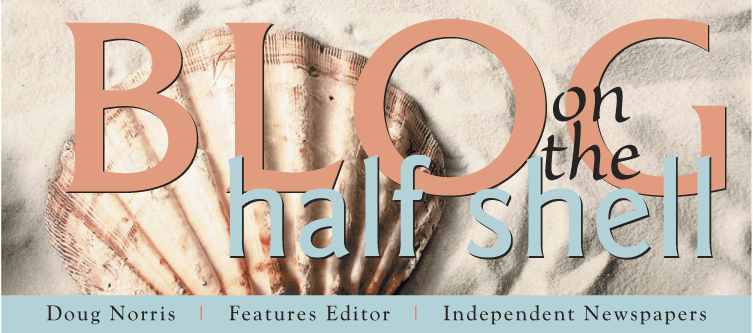In her letter she says:
As a former South County-ite, I made sure that Rhode Island and southern Rhode Island in particular, was well represented – down to the mention of River’s Edge Café for its American chop suey. Other Rhode Islandisms are in here as well; I don’t think anybody else in the country drinks cabinets. Bubbler is in here, too…although there’s some surprising (and perhaps disturbing) news about its use.
[Side note: River’s Edge Café is now Meldgie’s Rivers Edge Café, a concession by Meldgie to the fact that Rhode Islanders will always call things by what they once were instead of what they are. So when Quick Rick’s in Wakefield, which has been a fast eats pit stop for generations, turned over to a woman named Jessica it became Jessica’s Quick Rick’s. And when the Joyce Family Pub (or “Joyce’s”) in Matunuck was sold a few years back to an Irish woman named Tara, it became Tara’s Joyce Family Pub. That is, until recently, when she renamed it Tara’s Tipperary Tavern. But it will be at least 40 years before folks around these parts stop calling it “Joyce’s.”]
For the record, Harrison traces “bubbler” – meaning a water fountain where the water bubbles up from the spigot – to the Midwest, where the earliest known reference dates back to 1911. Most Rhode Islanders grew up with the word pronounced “bub-luh” but meaning the same thing, although there aren’t many of us left who date back to 1911 to tell the rest of us whether we were drinking from bubblers back then.
The book begins with a New England chapter titled “Wicked Pissa.” Most New Englanders will recognize the majority of expressions, although I was taken with “the frog run of the sap” (meaning the last batch of maple syrup you collect during the season, just about the time the frogs appear) and “gurrybutt” (the empty bowl that accompanies orders of clams, mussels or lobster at a fish shack or seafood restaurant and used for shell discards). A “killhag,” common to Maine and New Hampshire, is a trap used to catch a variety of animals. To “put the oakum on him” is to shut a guy up for good. (Oakum is a tarred hemp mixture used to seal the seams on boats.)
As for people living in the Other 44, some Southerners call a heavy rain a “frog strangler.” “Old Scratch,” a term for the Devil, was coined in New England but is still in use in parts of the South. That region also has more than one term for “the blues,” including the “mulligrubs,” which traces its etymology to a medieval English word for migraine, and “the weary dismals,” an expression heard in Tennessee as well as Virginia and North Carolina, which share the Great Dismal Swamp.
Iowans will eat a “loosemeat sandwich,” a concoction of ground beef and onions on a bun, known elsewhere as a “sloppy joe.” Lottery cards are known as “pickles” in Nebraska because they’re traditionally sold out of pickle jars. Avocados in Louisiana are known as “alligator pears” and French toast in New Orleans is “lost bread.”
Residents of Seattle have an expression, “the mountain is out today,” meaning those rare occasions when it’s clear enough to see Mount Rainier. (A local variation in praise of sunny weather, not mentioned by Harrison, is “it’s a three-bridge day,” spoken by residents of the East Bay on clear days when they can see the Mt. Hope, Newport (Pell) and Jamestown (Verrazzano) bridges bending over Narragansett Bay.)
Alaskans call whisky “arctic wine” and snowmobiles “iron dogs.” A “beignet” is a New Orleans-style doughnut without the hole, similar to Rhode Island’s (and New England’s) “doughboy,” which tends to be rounder, like the bellies of its eaters. In the Southwest, the same plump, powder-sugared confection is called a “bunuelo.” Other New England expressions for doughnuts include “boil cakes,” “cymbals” and “huffjuff” or “huffle juffle.” Some Connecticutites call them “holy pokes” while Mainers might refer to them as “Baptist bread” (or “Baptist cake”) in honor of the dough being immersed.
This week’s question: What’s your favorite regionalism?


No comments:
Post a Comment